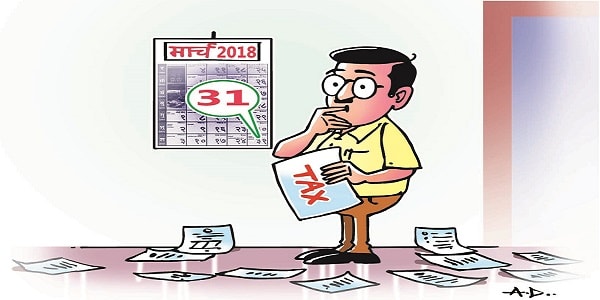Arjuna (Fictional Character): Krishna, Department is issuing Advance Tax notices to the taxpayers. So, explain the basic concept of the Advance tax.
Krishna (Fictional Character): Arjuna, If the income tax liability of any taxpayer is more than Rs 10000 in a financial year, then he is liable to pay such tax in installments during the year itself rather than paying this tax at the end of the year. This tax which is payable during the year is called as ‘Advance Tax’.
Arjuna: Krishna, what are the due dates for payment of Advance tax?
Krishna: Arjuna, Advance tax is to be paid in the four installments. Up to 15 per cent of advance tax payable, is to be paid on or before June 15 of the previous year. Up to 45 per cent of advance tax payable, is to be paid on or before September 15 of the previous year. Then up to 75 per cent of advance tax payable, is to be paid on or before December 15 of the previous year. And Up to 100 per cent of advance tax payable, is to be paid on or before March 15 of the previous year.
An Assessee who has opted for the scheme of computing business income under section 44AD and 44ADA on presumptive basis, is liable to pay only the last installment for the advance tax on or before March 15 of the previous year. Senior citizens, who are 60 years or older, not having income from business or profession, are exempt from paying advance tax. In case of Salaried person, the tax is to be deducted by employer himself. Here, previous year means the current financial year for which Advance tax is payable.

Arjuna: Krishna, before 15th March last installment of advance tax will have to be paid. What precautions taxpayers should take?
Krishna: Arjuna, Firstly prepare comparative balance sheet and profit and Loss account for the financial year 2019-20. Thereby taxpayers will come to know about approximate income of the current financial year and accordingly last installment of advance tax will have to be paid.
Arjuna: Krishna, Before paying the last installment of the advance tax, what things should be considered?
Krishna: Arjuna, Taxpayers should calculate approximate profits of the financial year and income tax thereon. From that Income Tax, TDS and advance tax already paid, which is reflected in Form 26AS will have to be deducted and last installment of advance tax should be paid.
Another simple method to calculate and pay advance tax is to consider last year’s total Income tax paid with current year’s approximate increase in the income and calculate advance tax on it. For e.g. if in the last year, tax of Rs. 1,00,000/- is paid and in current year considering approximate 20% growth, then income tax of Rs. 1,20,000/- will be payable. So, taxpayer has to pay the Advance tax according to the % given. Every businessman should pay advance tax after considering increase or decrease in the business income for the year.
Arjuna: Krishna, What will happen if advance tax is paid in short / excess?
Krishna:Arjuna, As good deeds helps everyone in future, if excess advance tax is paid it does not go in vain. Income tax department gives refund of the excess tax paid along with interest under section 244A. If less advance tax is paid then at a later date tax along with higher interest under section 234B and 234C will have to be paid and also will have to face notices from the department.
Arjuna: Krishna, What will happen if advance tax is not paid?
Krishna: Arjuna, if advance tax is not paid then interest will have to be paid @1% per month and one may face enquiry from the department. Further penalty may be imposed on the taxpayers who are required to pay high amount of advance tax. Due to computerization income tax department gets lot of information, on the basis of which department sends advance tax notices asking for payment of taxes.
Arjuna: Krishna, What lesson the taxpayer should take from this?
Krishna: Arjuna, in income tax, decisions of upcoming or current year are taken on the basis of Profit and Loss of the previous years. Advance tax will have to be paid on the basis of income of the current year. So, pay the tax as per provisions of the Act. Otherwise taxpayers will have to face consequences in the future. Precaution is always better than cure!
(Republished with Amendments)





Good deeds are helpful indeed. But I feel that the Department must pay the interest rate it levies to refunds also; giving half of what you charge for delay to good citizens is unfair
Good deeds helps you in future…..it was good and easy understandable article … JazaKhallaKhiran